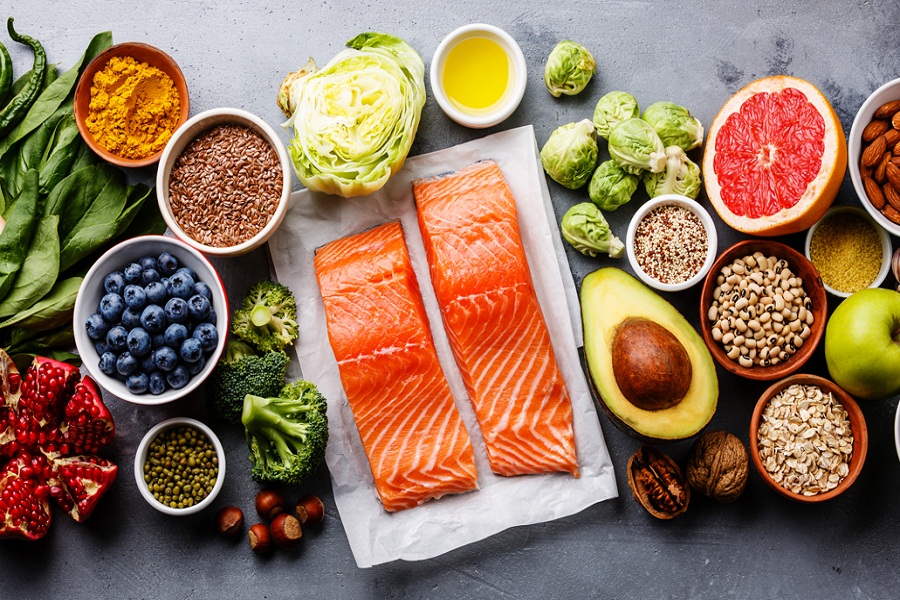
Published :
Updated :

The adage 'you are what you eat' holds true in the quest for optimal health, especially when incorporating power foods into your diet. These nutritional powerhouses, rich in phytochemicals, antioxidants, and essential vitamins, offer many health benefits beyond the superficial.
Phytochemicals, the naturally occurring compounds found in plant foods, play a pivotal role in treating and controlling various health issues such as high blood pressure, arthritis, osteoporosis, and digestive disorders.
Indulging in a diet abundant in power foods goes beyond addressing specific ailments—it promises extra rewards like weight loss and clearer skin.
What sets power foods apart is the intricate synergy between phytochemicals and vitamins, a complex interplay that cannot be replicated in a pill. The key takeaway is clear: to empower your body, improve physical and mental health, boost immunity, and guard against degenerative diseases that often emerge in old age, you need to consume more power foods.
To help you kickstart your journey to a healthier lifestyle, consider incorporating the following power foods into your daily meals:
Red, yellow, and orange fruits
Include a vibrant array of red grapes, melons, berries, grapefruit, bananas, pineapple, peaches, nectarines, oranges, mangoes, papayas, and apricots. Packed with vitamin C, flavonoids, and antioxidant carotenes, these fruits prevent cancer, protect eye health, and help maintain low blood pressure.
Red, yellow, and orange vegetables
Embrace beets, carrots, squash, sweet potatoes, pumpkins, and tomatoes. Laden with carotenes like beta-carotene, lycopene, and lutein, these vegetables are crucial in blocking carcinogens, supporting heart health, exhibiting anti-inflammatory properties, and slowing down the ageing process.
Cruciferous and leafy green vegetables
Integrate broccoli, Brussels sprouts, cabbage, cauliflower, radishes, turnips, lettuce, spinach, parsley, watercress, and Swiss chard into your diet. Broccoli, in particular, is hailed as the number one food for protection against cancer, thanks to its high content of indoles and sulforaphane.
Garlic family
Don't ignore the pungent goodness of garlic, onions, leeks, scallions, and chives. Beyond their sharp taste, these members of the garlic family have proven abilities to lower blood pressure, reduce cholesterol levels, and boost the immune system.
Whole grains
Opt for whole wheat products, corn, brown rice, barley, oats, millet, rye, and buckwheat over their refined counterparts. Packed with essential vitamins, iron, magnesium, and high fibre content, whole grains reduce cholesterol, lower the risk of heart disease, and prevent digestive issues.
Beans and other legumes
Embrace beans, peas, and lentils as rich in fibre, protein, calcium, and iron source. These low-fat wonders strengthen bones, nourish the blood, act as effective blood thinners, and reduce cholesterol.
Soy and soy products
Explore the world of soybeans, soy milk, soy cheese, tofu, miso, soy nuts, soy yoghurt, soy ice cream, and soy flour. Japanese women, who consume the highest amount of soy globally, experience a lower incidence of breast cancer. Isoflavones in soybeans prevent cancer cell formation, reduce the risk of breast cancer, and alleviate menopausal symptoms.
Nuts and seeds
Indulge in walnuts, almonds, flaxseeds, peanuts, pumpkin seeds, sesame seeds, and sunflower seeds. While high in calories and fat, these snacks, in moderation, offer omega-3 fatty acids that enhance brain function, control blood cholesterol, relieve arthritis, and benefit the cardiovascular, digestive, and reproductive systems.
Nuts and seeds are also rich in B vitamins, ideal for combating stress and increasing mental energy.
m.nishat26@gamil.com


 For all latest news, follow The Financial Express Google News channel.
For all latest news, follow The Financial Express Google News channel.